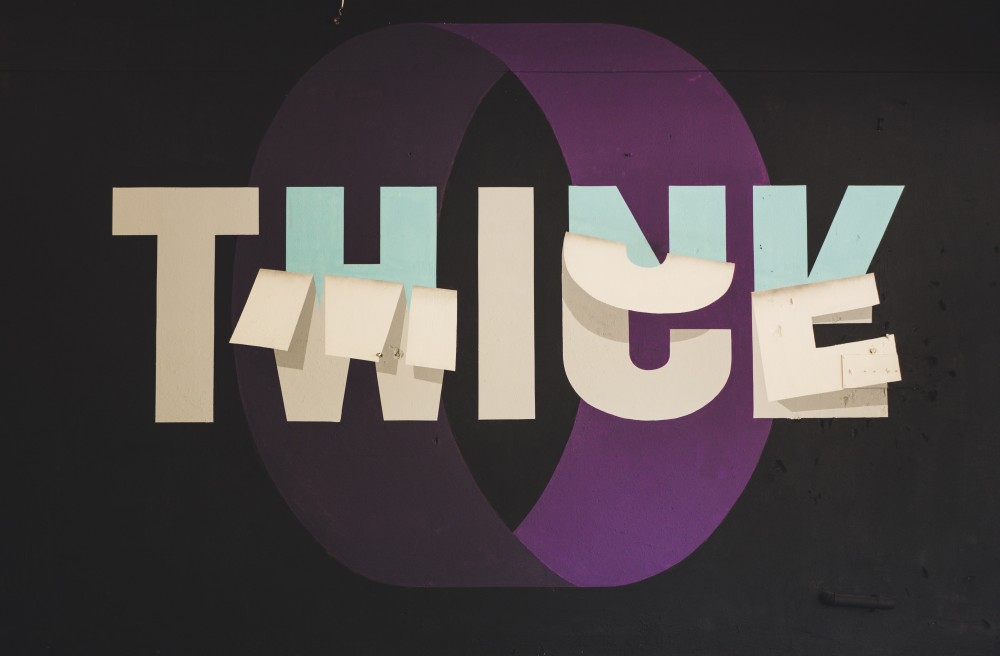Do you know what words/phrases are considered offensive?
July 25th, 2022
Years ago, irreverent standup comic George Carlin did a routine about the seven words you can’t say on TV. Of course, I am not going to say/write them here but if you are interested here is a link that you can find them at https://genius.com/George-carlin-the-seven-words-you-can-never-say-on-tv-lyrics . Nowadays, they are a lot more than 7 words or phrases that you shouldn’t use, and the list gets longer every day. Recently, a co-worker sent several of us in the office an article that they received from one of the professional organizations that they are part of. It is a list of words or phrases that you shouldn’t say and why. Trust me, this is not the only list like this. After doing some research, there are a never-ending stream of them, but for the sake of brevity, I am going to keep the list for discussion merciful short.
Growing up, my mother used to say, sticks and stones will break my bones, but names will never hurt me. During my kids’ time in grammar school, it was the D and D Rule, which stood for dangerous and destructive. Unless you were physically being threatened, harmed, or witnessing destruction of property, you didn’t involve teachers or other adults. Those days are long gone, never to return in my lifetime. As those who know me understand, political correctness is not a strength of mine, but I do like to be informed. In general, I believe that we have gone a bit too far with the power that we have given words. As a co-worker reminded me, words themselves have no meaning other than the meanings that we assign to them. That being said, I would never want to intentionally inflict harm on anyone, knowingly insult, or offend them.
Here are some of the words and phrases that I struggle with being on the naughty list.
- Hip Hip Hooray – Right off the bat, it is not easy to track its actual lineage. Some sites / people claim that it was a German herding call “hep hep” that they used when forcing Jews from their homes. I have read a lot of books and articles, talked to holocaust survivors, and watched a number of documentaries and never heard or saw this mentioned. Not that it matters, but I am Jewish and had Grandparents that wouldn’t buy any product from Germany. I think they would have mentioned it. Several other sources said they could find no connection to the term and anti-Semitism.
- Rule of Thumb- Supposedly, this is the width of a wooden stick that is acceptable to beat one’s wife with. This appears on several lists, and yet, there is no historical evidence backing that up. Many of those lists even said they weren’t sure it was true, but shouldn’t we air on the side of caution.
- Nitty Gritty – It’s origin, supposedly, comes from a term describing the debris left by slaves on the ships they were brought over on. Yet, one website did the research on it and found that the first time it was in print was in the 1930’s, long after slavery and made no reference to the commonly accepted origin story. Another article, which had it on the list, dismissed the contradiction because they said the site was concerned with too much political correctness but offered no actual proof that this, in fact, dated back to the slave traders. Let’s face it, slave traders and slave owners often bragged about their horrible treatment of the slaves, I have to believe this would have appeared somewhere.
Honestly, these lists are endless, and I encourage you to look them up and decide for yourself.
Some of what I found, I whole heartedly agreed with and others I am unsure about:
Pow Wow
Off the reservation
Tribes
Tipping Point
Cretins
Ennie Meany Mini Moe
Guru
Peanut Gallery
Of course, it made me create my own list with phrases that I didn’t find on any list:
Hon, Honey, or Sweetie – I’ll bet that you all know someone that calls many people by one or more of these names. It is often people that they don’t even know. Have you been out to a restaurant and your server says, “What can I get you, Hon”? Most of us don’t even think about it. Long before “Me Too” many people would consider this inappropriate terminology.
Too many Chiefs and Not Enough Indians – Despite tribe, Pow Wow and off the reservation appearing on the list, this was nowhere to be found. It is a phrase that a number of people still use. Similar to the phrase too many cooks in the kitchen meaning there are too many people “running the show” and not enough people actually doing the work. Surely, no explanation is needed as to why this phrase shouldn’t be used.
I’m Starving – Often this phrase is followed by, I haven’t eaten since breakfast. In a world where children and adults are literally starving to death, there must be a better way to let others know that you are a bit hungry or hangry, if you will.
Fascist- A true Fascist is one that believes in a totalitarian government, not simply an individual that has a divergent political philosophy from yours. Fascist governments historically have been incredibly brutal. It is a term that shouldn’t be thrown around lightly.
By now, some of you may be asking what is the point or the takeaway from this? There are several. First, I truly believe that a segment of our population look for things to be angry or indignant about. We are talking about meanings or usages of words so far back in our history that most people roaming the planet today had no idea about. We also can’t forget about inflection or intent. Peanut Gallery is on a number of lists and yet the word boy appears nowhere. Peanut Gallery does have a history that is absolutely traced back to segregation. It was often referring to the cheap seats in a theater, during the vaudeville era, which were often reserved for people of color. That was about 100 years ago, and few people alive today truly understand the origins. When they use the term today, they are often talking about people giving their opinion, when it hasn’t been asked for. There is no intent to hurl a racial or insensitive insult. Even today, the word boy can be used in a very negative way. It has been used for generations as a demeaning term for African American males. Commenting to someone with a young male child that they are a cute boy clearly has no malice in it. We can tell when the word is used to inflict pain. Should the word boy be on the list? No, but it never hurts to be more careful with the language that we use.
As stated earlier, I never want to hurt anyone with words or actions but there are enough problems in this world that I don’t need to go looking for them. Perhaps, I am in the minority, but I don’t subscribe to the theory that we should air on the side of caution, even if there is nothing solid to back the claim. So many of these lists had some similar, if not exact, language. Do we not owe it to ourselves, and others, to be accurate and honest and not simply continuing to promote or further internet inaccuracies? It’s clear that words can hurt, so be careful of the words you do use.
About the author
Ken Abrahams was born in South Bend Indiana in 1960. His mother was a Special Education teacher who loved language but also loved accuracy. Opinions expressed here are his and his alone.
To find out more about the company go to our website www.funent.com you can also go to this link to sign up for our newsletter which comes out about 6 times a year https://funent.com/subscribe-to-the-funny-pages/. Our newsletter will tell you more about the company and the products and services we offer as well as some games, things to do and the occasional cooking tip.
Categories
Put More Fun In Your Life
Put More FUN In Your Life!
Call Us!
(781) 436-3187
Subscribe to the Funny Pages
Looking for the latest news on what's happening around FUN Enterprises? Sign up to receive our monthly newsletter, The Funny Pages, and be the first to get tips from our professional staff, hear about sales and promotions, solve the monthly trivia, and more!












